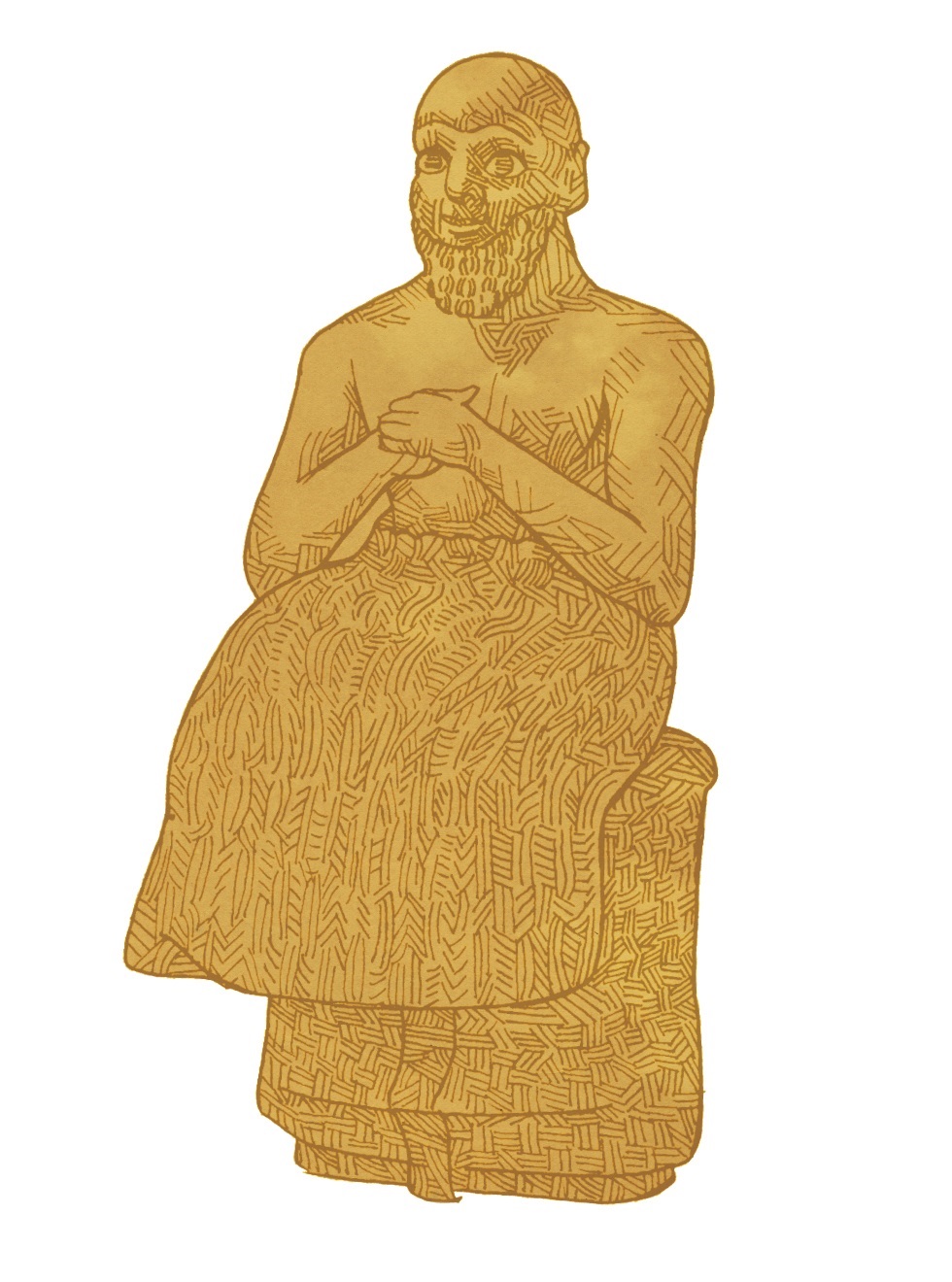 Statue of Ebih-Il, drawing by Simeon Goa, © Journal of Hebrew Scriptures
Statue of Ebih-Il, drawing by Simeon Goa, © Journal of Hebrew Scriptures
Submissions
Copyright Notice
All authors published in JHS retain copyright and grant the journal right of first publication with the work simultaneously licensed under a Creative Commons Attribution 4.0 International (CC BY 4.0) License that allows others to share the work, including for commercial purposes, with an acknowledgement of the work's authorship and initial publication in this journal. Authors will never be charged to submit or publish a manuscript through Journal of Hebrew Scriptures. (Please note: articles published before 2021 are licensed under a CC BY 2.5 License.)
The JHS Publication Agreement provides additional details and defines the relationship between the journal and its authors. Authors must formally approve the details of the Publication Agreement before any article can be published in JHS.
Privacy Statement
The data collected from registered and non-registered users of this journal falls within the scope of the standard functioning of peer-reviewed journals. It includes information that makes communication possible for the editorial process; it is used to inform readers about the authorship and editing of content; it enables collecting aggregated data on readership behaviors, as well as tracking geopolitical and social elements of scholarly communication.
This journal’s editorial team and its hosting service, the University of Alberta Libraries, use this data to guide their work in publishing and improving this journal. Data that will assist in developing this publishing platform may be shared with its developer Public Knowledge Project in an anonymized and aggregated form, with appropriate exceptions such as article metrics. The data will not be sold by this journal, the University of Alberta Libraries, or PKP nor will it be used for purposes other than those stated here. The authors published in this journal are responsible for the human subject data that figures in the research reported here.
This website uses Google Analytics, a service which transmits website traffic data to Google servers in the United States. Google Analytics does not identify individual users or associate your IP address with any other data held by Google. This journal uses reports provided by Google Analytics to help us understand website traffic and webpage usage, and report on such usage to funding agencies, association members, and other agencies. You can opt out of Google Analytics by installing this browser add-on.
Those involved in editing this journal seek to be compliant with industry standards for data privacy, including the European Union’s General Data Protection Regulation (GDPR) provision for “data subject rights” that include (a) breach notification; (b) right of access; (c) the right to be forgotten; (d) data portability; and (e) privacy by design. The GDPR also allows for the recognition of “the public interest in the availability of the data,” which has a particular saliency for those involved in maintaining, with the greatest integrity possible, the public record of scholarly publishing.


